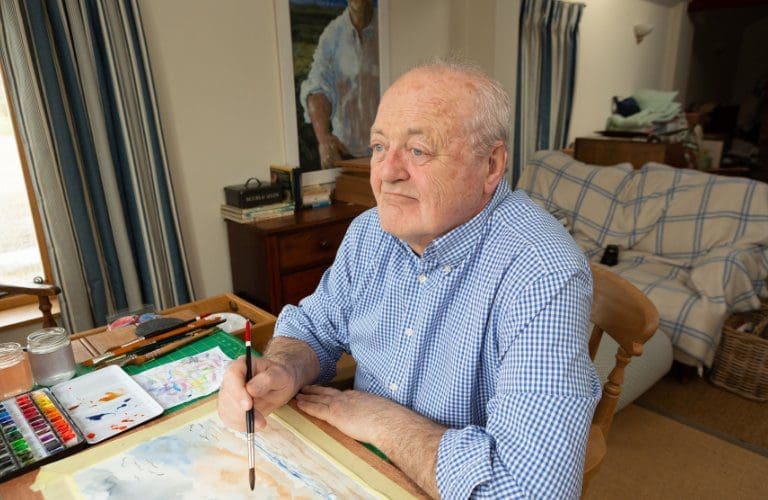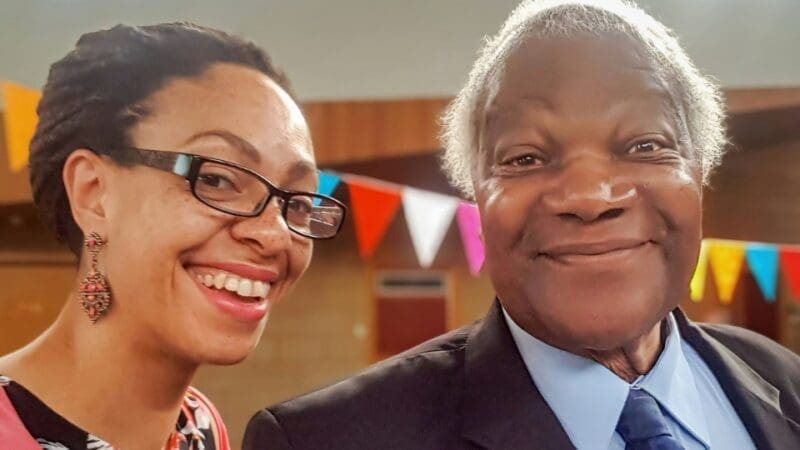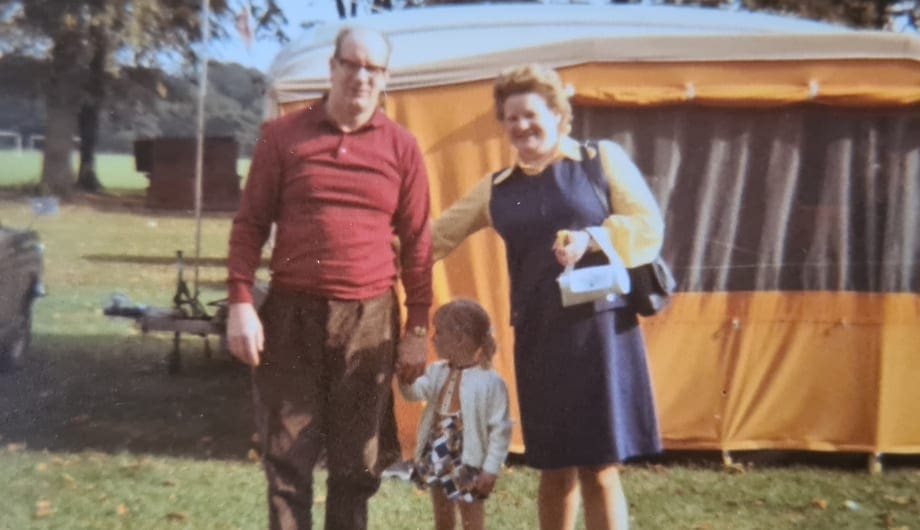
George’s story
George was diagnosed with mixed dementia in 2014 at the age of 62 and has spent much of the last eight years meeting people who live with the condition and campaigning for better support and services.
Mixed dementia is a condition where two or more types of dementia occur together, which often makes it challenging to diagnose and manage. A person with mixed dementia will experience a combination of the symptoms associated with the types of dementia they have.
Our dementia specialist Admiral Nurses explain the most common types of mixed dementia, symptoms to look out for and strategies for managing the condition.
Mixed dementia can involve any type of dementia. However, the most common forms are Alzheimer’s disease with vascular dementia and Alzheimer’s disease with Lewy body dementia.
The most common form of mixed dementia is a combination of Alzheimer’s disease and vascular dementia. The person will have symptoms of both forms.
Some of the most common symptoms of early Alzheimer’s disease include:
Some of the most common early symptoms of vascular dementia include:
When Alzheimer’s disease occurs in combination with Lewy body dementia, symptoms of both will overlap.
Some of the most common symptoms of Lewy body dementia include:
Common symptoms of early stage Alzheimer’s disease include:
Mixed dementia is most common in people over 75 and accounts for at least 10% of all dementia diagnoses.
For mixed dementia that involves Alzheimer’s disease and vascular dementia, the main risk factors are older age, high blood pressure and blood vessel damage in the brain. Find out more about causes and risk factors of dementia.
The symptoms of mixed dementia vary depending on the types of dementia involved and the areas of the brain that are affected. The person will experience symptoms of each type of dementia that they have. These might include:
Our pages on types of dementia have more information about the symptoms specific to each form of the condition.
Mixed dementia can be challenging to diagnose because the person will experience symptoms of more than one type. This may mean that the person is diagnosed with the wrong type of dementia, or with a single form, whereas they actually have two or more. This could impact the treatment and support they receive.
The first step towards getting a diagnosis is to see a GP, who will carry out some initial health checks and basic assessments of memory. If the GP suspects the person has dementia of any type, they should be referred for further assessment, usually with a memory clinic. To accurately diagnose mixed dementia, the healthcare professional will need specialist knowledge of the different types of dementia and their symptoms.
There is currently no cure for dementia, and no way to prevent it from progressing. However, there are various strategies, including medication, therapies and support, that can help with managing the symptoms.
If a person has mixed dementia that includes Alzheimer’s disease and is in the early to middle stages, they may be prescribed medication to help with managing the symptoms and slowing the progression. The most commonly prescribed are donepezil, rivastigmine or galantamine. However, these are not suitable for everyone with mixed dementia involving Alzheimer’s disease; for example, if the person also has frontotemporal dementia, it could make their symptoms worse.
Some people may be prescribed medication for other health conditions that are linked to their dementia. For example, vascular dementia may be caused by problems such as high blood pressure, high cholesterol, type two diabetes or strokes, so if a person has mixed dementia that includes vascular dementia, they may be given medication for these conditions.
There are a number of therapies that may help improve a person with dementia’s quality of life or abilities. Some of these are:
Making lifestyle changes and ensuring conditions like heart disease, high blood pressure and diabetes are well managed can help the person with mixed dementia stay as well as possible, maintaining their quality of life and independence. You could support the person to:
It is very difficult to predict how quickly someone’s dementia will progress. However, dementia is often classified in three stages: early, middle and late. The speed at which dementia progresses will depend on factors like:
If the person has two types of dementia the symptoms can be more noticeable and appear to progress more rapidly.
Research indicates that mixed dementia is often not recognised or misdiagnosed, which may lead to the person missing out on treatment and support that could be helpful to slow the progression of their specific form of dementia or make it more manageable.
If you are living with dementia or caring for someone with the condition, register for our free online sessions, ‘Dementia: what next?’.
To speak to a dementia specialist Admiral Nurse, call our free Dementia Helpline on 0800 888 6678 (Monday-Friday 9am-9pm, Saturday and Sunday 9am-5pm, every day except 25th December) or email helpline@dementiauk.org.
If you prefer, you can book a phone or video call with an Admiral Nurse at a time to suit you.

George was diagnosed with mixed dementia in 2014 at the age of 62 and has spent much of the last eight years meeting people who live with the condition and campaigning for better support and services.

Serena shares how writing poetry has helped her to process her feelings since her dad’s dementia diagnosis. She now shares her poetry as a way to honour her dad and to encourage other people affected by dementia to share their own experiences.

Heather shares her experience of attending a free face-to-face clinic with Admiral Nurse Debi.
While some risk factors, such as age and, in rarer cases, genetics, cannot be altered, research suggests that making some lifestyle changes can reduce the risk of dementia. For example, making sure you are exercising, eating a balanced diet and monitoring blood sugar and blood pressure can help lower your risk of developing dementia.
The overall progression of mixed dementia can be faster than in people with a single form of dementia. However, it is important to note that everyone is different and the speed at which dementia progresses will vary. An accurate diagnosis of which types of dementia are involved could slow the progression or make it more manageable, for example by taking medication for Alzheimer’s disease if appropriate.